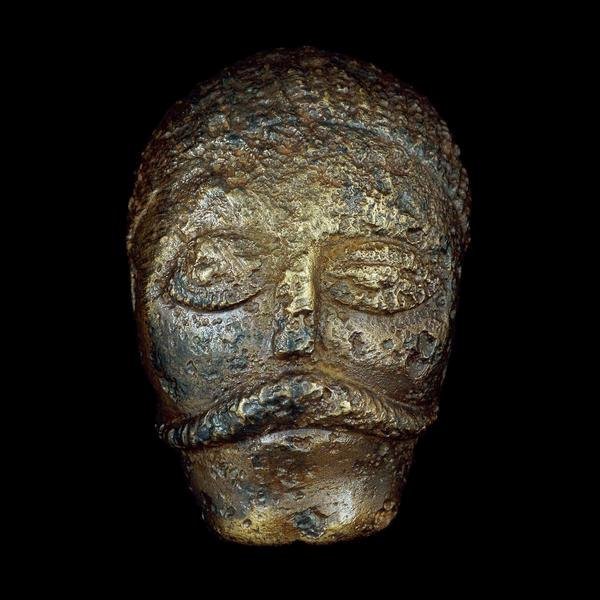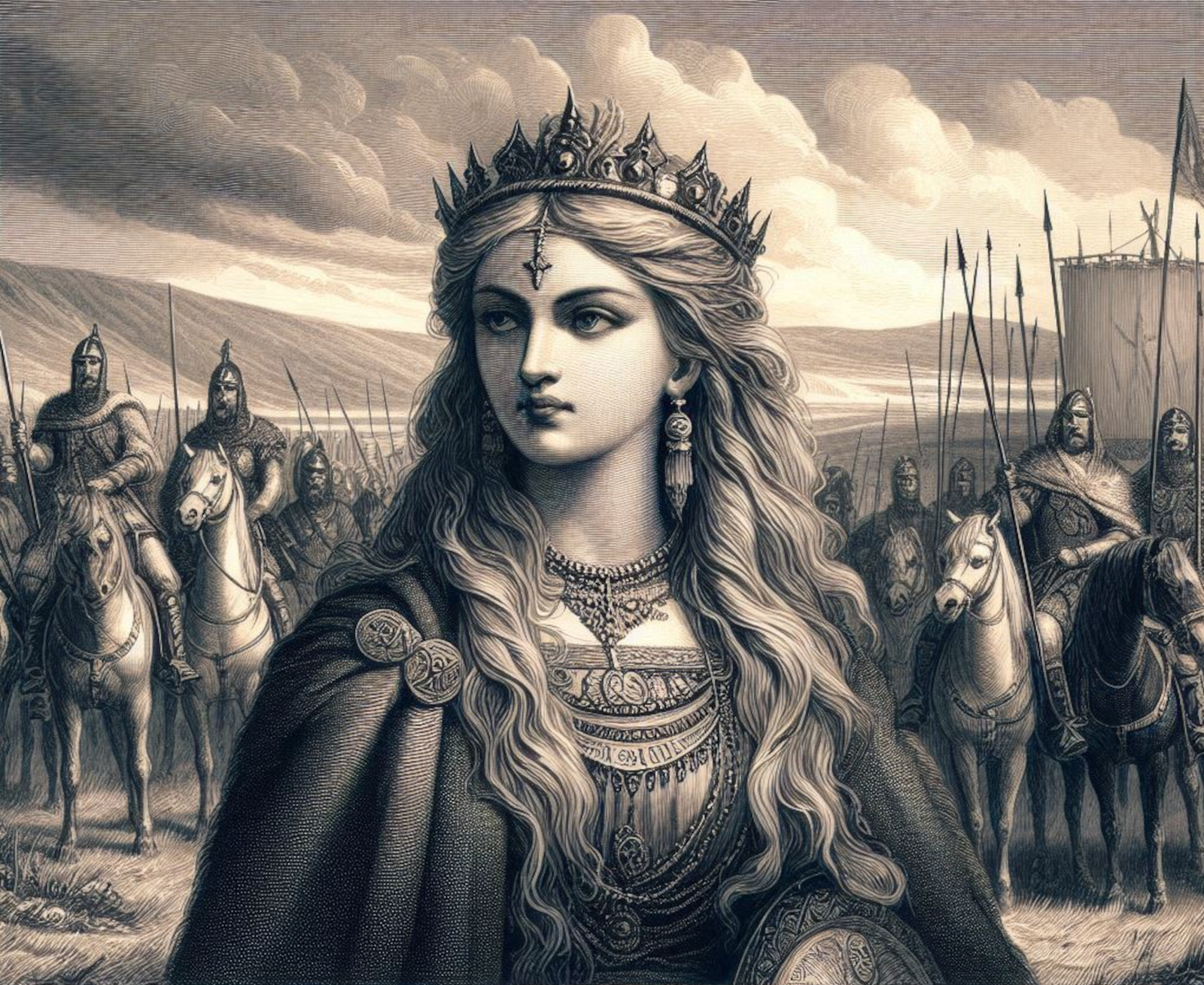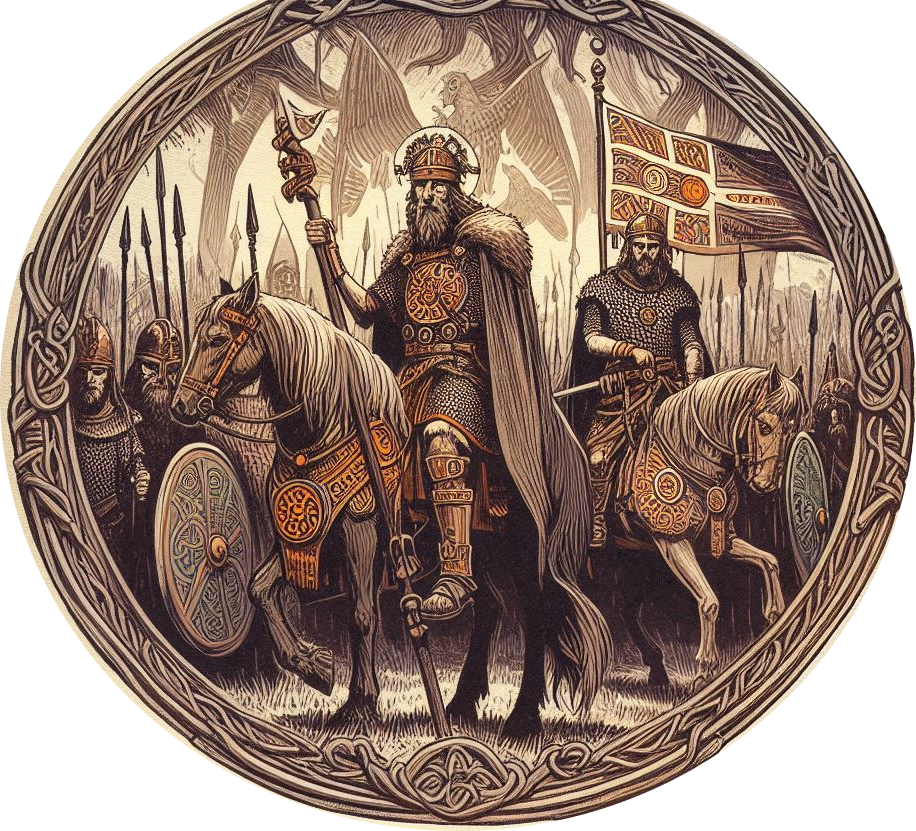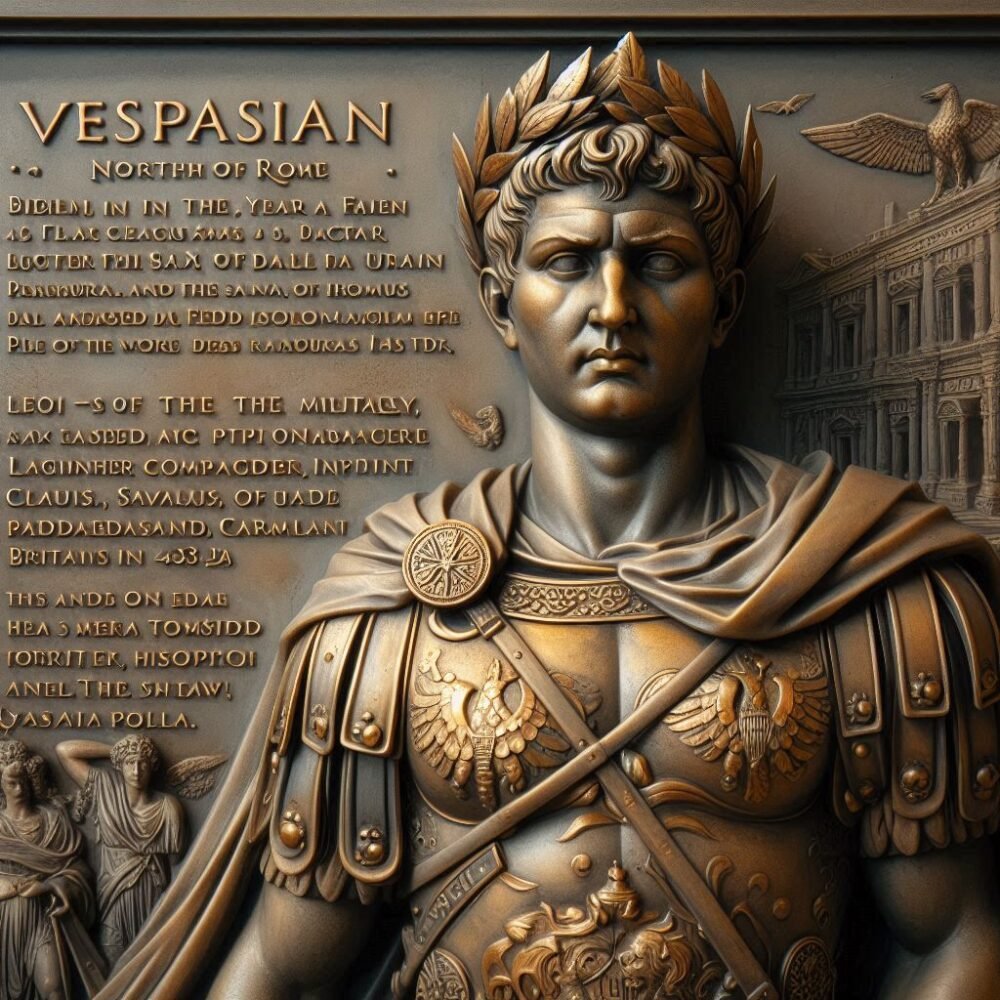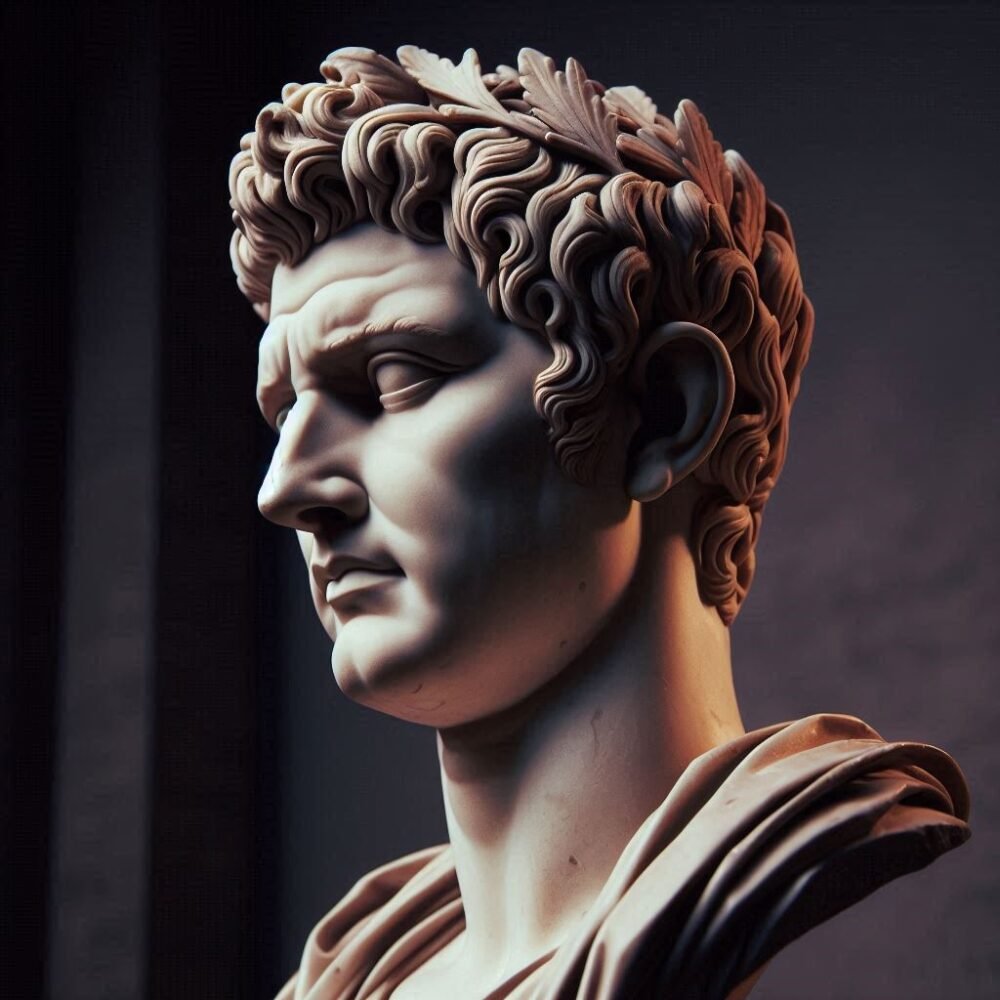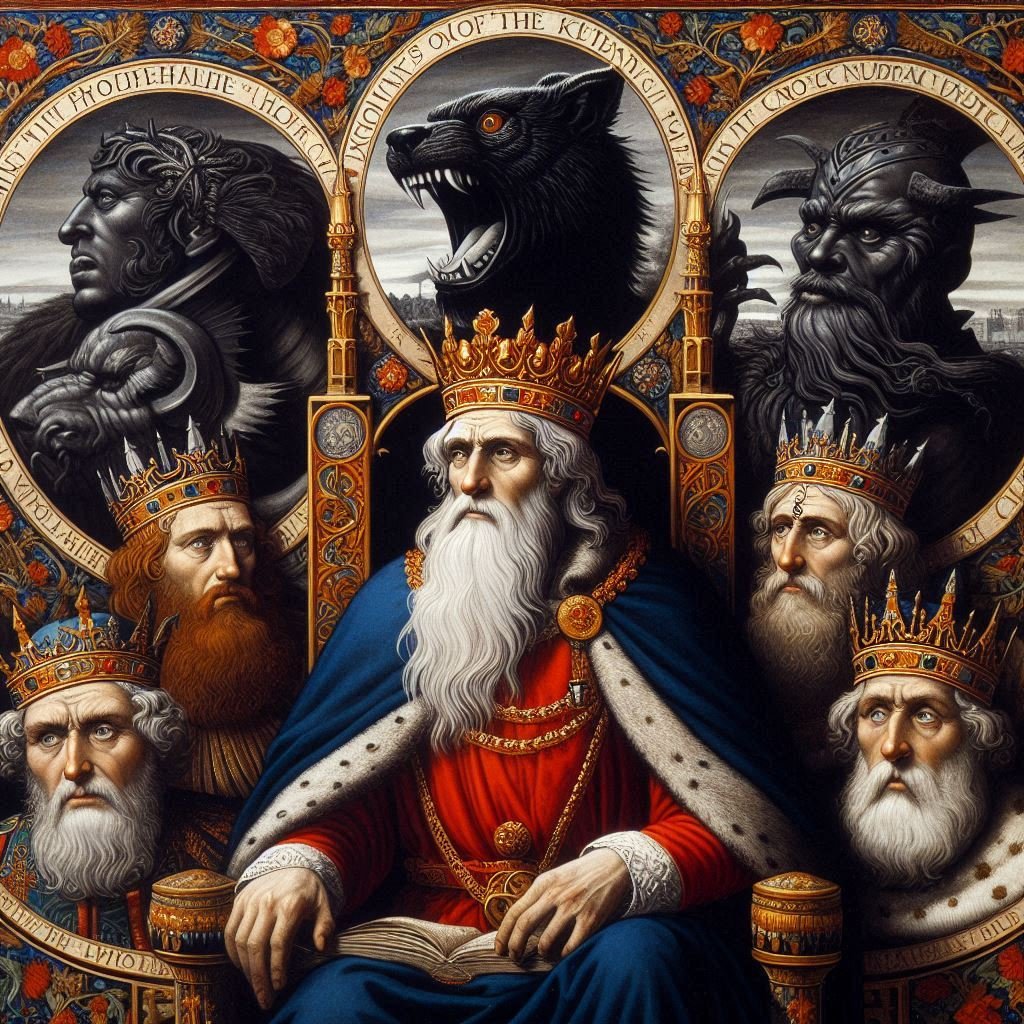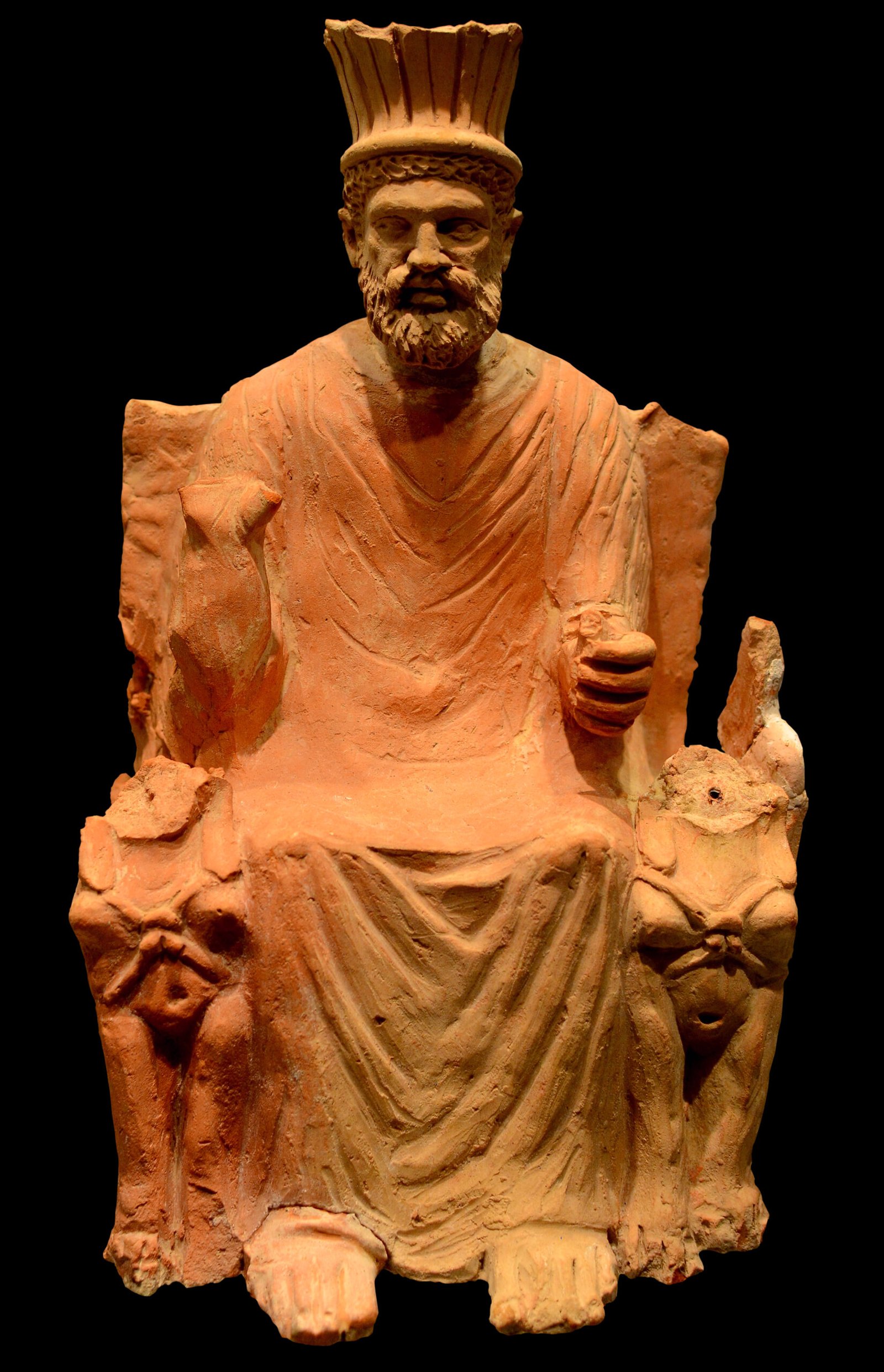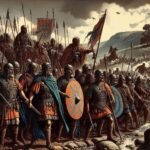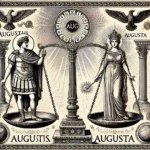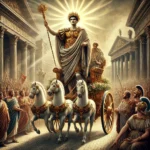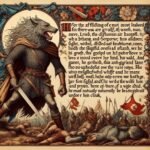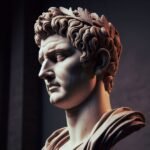
Augustus (Gaius Octavius)
Emperor : 31BC – 14AD
Titles: Imperator Caesar Divi Filius Augustus, Pontifex Maximus, Consul XIII, Imperator XXI, Tribuniciae Potestatis XXXVII, Pater Patriae
|
Wives :
|
Claudia (43BC) | Scribonia (40BC) | Livia Drusilla (38BC) |
|
Children :
|
Julia – Daughter |
Gaius Octavius Augustus was born in 63BC into a wealthy family of knights (equites) in Velitrae, south-east of Rome. His father had been the first member of his family to achieve the status of senator. Later he went on to become a practor, thereby giving his son high standards to follow. When he died in 59BC, Augustus’ mother, who was the niece of Julius Caesar, took over his upbringing and guided him into his career in Roman politics.
His career in the political field was mainly due to his family connections rather than political competence, but it was a most incredible turn of events that caused him to become emperor.
In 44BC, Julius Caesar was assassinated by Brutus and Cassius. It was when Caesar’s will was read that it was discovered that Augustus had been adopted as Caesar’s son and had been given the throne of Rome. Caesar could not have foreseen his assassination, so Augustus had become Emperor at, in political circles, the young age of eighteen. In honour of his new-found father, Augustus changed his name to Gaius Julius Caesar. Against strong advice and pleading from his family and those around him, Augustus took the throne and began the hunt for those he held responsible for Caesar’s death. Eighteen was such a young age to ascend to the throne, it was feared that he would not have the experience and knowledge to handle the plotting and intrigue that abounded in the Roman senate.
His first action was to try and persuade Marcus Antonius (Mark Antony), who had been Caesar’s main and most trusted supporter, to give him Caesar’s assets and documents, both personal and political. Antonius refused to do this and so Caesar’s legacies had to be given to the Roman public In retribution, Augustus organised the “Games of the Victory of Caesar” in an attempt to gain the support of the Roman public.
In his autobiography, he wrote :
On the very day of my games, a comet was seen in the northern part of the sky for seven days. It appeared about the eleventh hour of the day and was clearly visible in all countries. The young people believed that by that star it was signified that the soul of Caesar was received among the immortal gods, on which account the sign of a star was attached to the head of the statue which I shortly consecrated in the Forum.
He followed this in 42BC by announcing that Julius Caesar be given the posthumous status of a god of the Roman state. As did Caesar, Augustus set up the Second Triumvirate with Antony and Lepidus. Dictators were not popular with the Roman Senate, and Augustus had to be careful about whom he trusted. He was aware he was following the same path as Caesar had taken, and also of the brutal end that Caesar had suffered. Augustus had to ensure he did not leave office in the same manner. One method he employed of helping his image, was set about re-inventing Caesar, by playing down his weaknesses and praising his god status. Being the adopted son of a god was one way of bringing fear into the hearts of his enemies. No-one was going to publicly argue with anyone of such a high standing.
With the dictatorship now well and truly established, Augustus began to dispose of his opponents. He used every method he could think of, treachery, corruption, murder. One way or another, anyone who opposed him had to be hounded out of Rome or killed. He was not going to allow anybody who openly criticised him to stay in office.
This Second Triumvirate was slightly different to the first, as the power was in the hands of three men, not one. Therein lay the weakness of this dictatorship. With three power crazed individuals all vying for control, friction was imminent. This finally came to a head at the battle of Actium in which Augustus was seen to be the winner on all counts.
From there he went on to consolidate his power by taking consulships for himself, keeping them year after year to make sure no-one could challenge his power. He changed the constitution many times to make it appear he was allowing others some of the reins of power, but the more experienced of the senate could see that these were just conjuring tricks designed to give a false sense of security.
There was another aspect that Augustus exploited to the full. The people of the Roman Empire had tired of all the civil wars, and were eager to allow Augustus to reign as he promised them peace and stability.
This he did and showed his mastery of image making by making himself more accessible to the people, as Caesar had done. Even a dictator had to show respect for his subjects if he were to retain power. He was often seen walking the streets alone at night, conversing openly and politely with anyone who approached him. His morning receptions were open to anyone regardless of status, provided they held Roman citizenship, of course. His meetings with these people became popular, as this gave the grassroots citizens a chance to air their views to someone with power. This was a mean feat of marketing.
Even so, the power he held brought a constant fear and uneasiness to his life. This is displayed shown in his sleep pattern, which is recorded as erratic due to the constant nightmares he endured. A sure sign of someone stressed. His problems with sleep did not end there. If he had a couple of bad nights, he would habitually nod off during official business and have to be prodded by an aide to return to alertness.
As with most ambitious people, Augustus was power crazed in his personal life as well. Despite being husband to Livia, he had many mistresses, many of whom were married themselves.
Suetonius wrote of him:
He was very handsome and most graceful at all stages of his life, although he cared nothing for any sort of refinery. He was so uninterested in how his hair was dressed that he would set several barbers to work at once in a hurry, and he would have his beard clipped at one time and shaved at another, and while the barbers were working he would read or even write something. His expression both when he was talking and in silence was so calm and mild that a certain Gallic noble confessed to his own countrymen that it had softened him and prevented him from his plan of hurling Augustus over a precipice when, during a crossing of the Alps, he had been allowed to approach him under the pretext of talking with him.
Augustus’ eyes were clear and bright, and he liked men to think that there was a sort of divine power in them. He was very pleased if anyone at whom he looked keenly lowered his face as if before the light of the sun. In old age he did not see very well with his left eye. His teeth were widely separated, small and dirty. His hair was slightly curly and yellowish. His ears were small. His nose protruded somewhat at the top and bent inwards at the bottom. His complexion was between dark and fair. He was short, but this was disguised by the good proportions of his figure and only apparent if someone taller stood beside him.
The strain of power must also have affected his health as it is recorded he limped, suffered from abscesses on his liver, a bad case of acne, worms, and bleeding from the anus. (caused by use of a scraper to remove the worms.) He also had extreme discomfort when urinating from stones in his bladder which were painful when he passed them, and in cold weather had severe chest problems.
But there was a curious pattern to some of his illnesses. They seemed to come on, just before the start of a battle in which he was to have taken part, and he miraculously when the battle had ended. To dispel the rumours of cowardice and hypochondria that spread, he took part in two campaigns. Dalmatia (35-33BC) and Spain (27-25BC) in which he was wounded in both.
In later years. Mental problems beset Augustus. By the ripe age of 71, he did not wash or groom himself and was seen many times to be hitting his head against a wall. Gradually, his health deteriorated and on 14th August 14AD, he caught a cold on a night journey by ship. Even in such a month reputed for warm evenings and despite the comfortable conditions lived in, he succumbed to ill health. On the 19th August he died aged 77.
Despite the lessons he had learned from the reign of Caesar, one fact emerged. He never learnt that successful people trust others and delegate tasks to them. As with Caesar, he thought he could do it all himself. Overwork. The killer of so many powerful people in history had claimed another victim.


